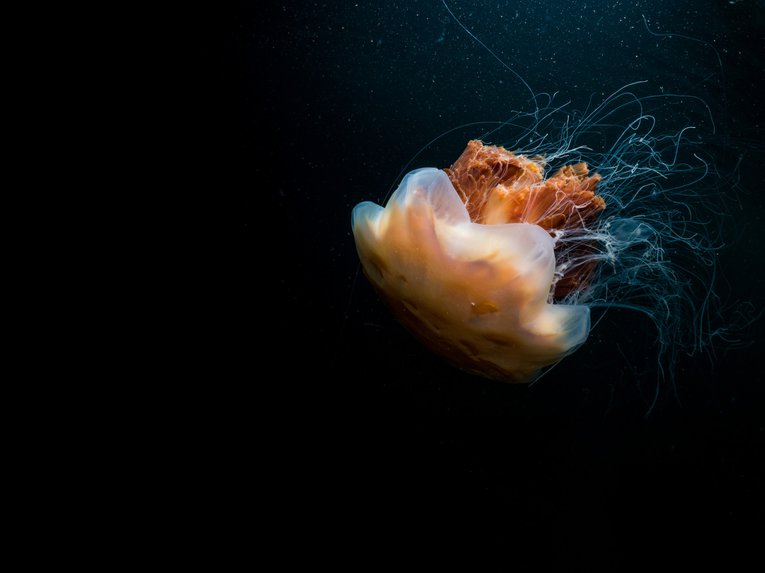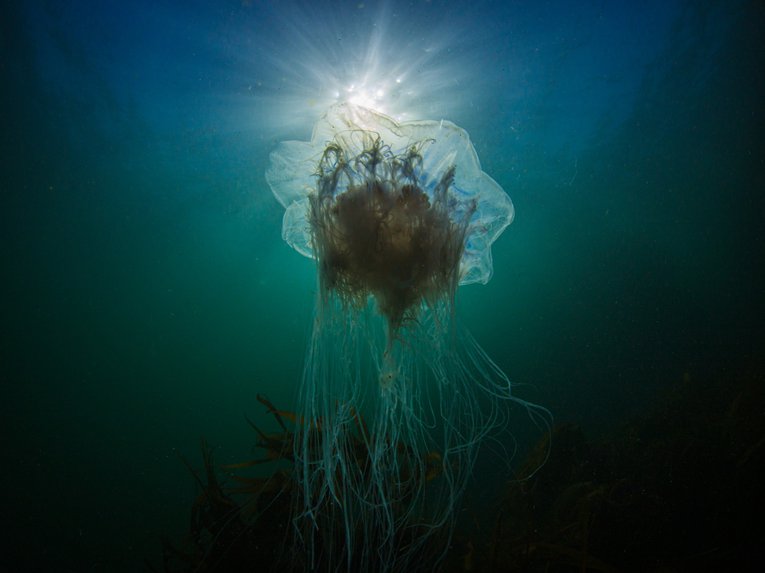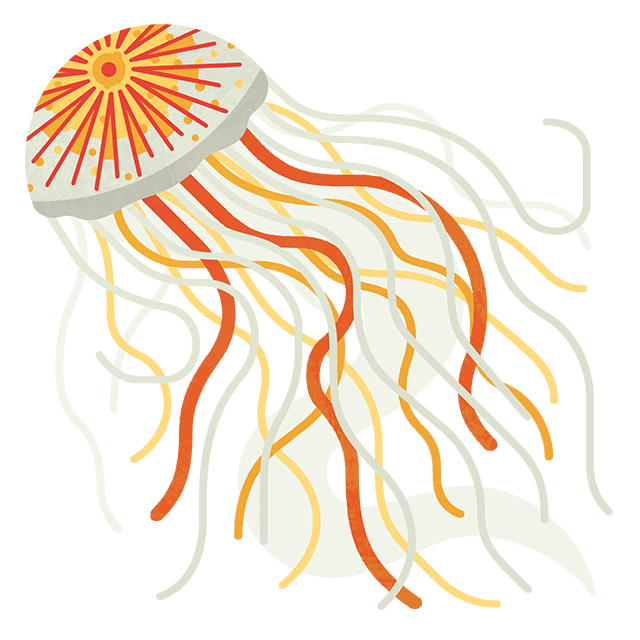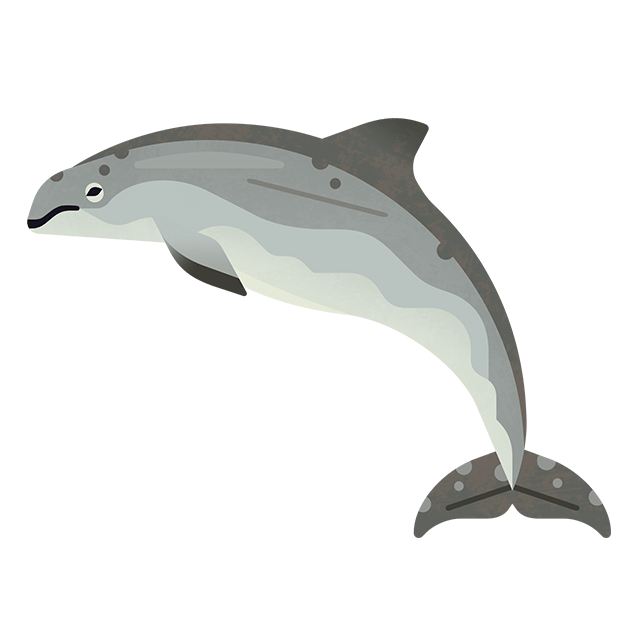
Jellyfish superstars you can spot on UK shores
We’ve rounded up some of the jellyfish you’re most likely to spot on the UK coastline and shared how you can get involved in our Jellyfish Survey.
To date, thousands of people have shared sightings of jellyfish from around the UK, helping to build an extensive data set of six jellyfish and two jellyfish-like hydrozoan species. Understanding trends in jellyfish distribution and numbers can help us understand where leatherback turtle feeding grounds might be, as well as potentially indicating the impacts of climate change on our ocean.
Moon (Aurelia aurita)

Credit: Mark Kirkland
Recognisable thanks to the four pale purple rings on its bell, these jellyfish can grow up to 40cm in diameter. The bell is transparent and umbrella shaped with short, hair-like tentacles. Among the tentacles you’ll spot four short, frilled ‘arms’. The moon jellyfish has a very mild sting, so no need to panic.
Compass (Chrysaora hysoscella)

Credit: Mark Kirkland
Look, but don’t touch…this jellyfish stings. Typically growing up to 30cm in diameter, the compass varies in colour but typically has a pale, umbrella-shaped bell, with brownish v-shaped markings. Among the 24 long, thin tentacles are four longer, thick, frilled arms.
Lion's mane (Cyanea capillata)

Credit: Mark Kirkland
Social distance from this one, this jellyfish has a very painful sting. One of the larger jellies you can spot in UK waters, although mostly confined to more northerly waters, lion’s mane are usually 50cm in diameter, but can reach up to 2m across. They can be recognised by their reddish brown umbrella-shaped bell, a shaggy ‘mane’ of red hair-like tentacles, as well as a fringe of many-metres-long thin stinging tentacles that promise plenty of pain – not to be messed with!
Blue (Cyanea lamarckii)

Credit: Mark Kirkland
With a similar shape to the lion’s mane, but with a distinctive colouring, the blue jellyfish is much smaller, growing up to 30cm in size. The blue jellyfish has a smaller, blue bell through which you can see line markings. Confusingly, the blue jellyfish also comes in yellow! This jelly has a mild sting, so as always, approach with caution.
Barrel (Rhizostoma pulmo)

Credit: Damsea via Shutterstock
This is the Arnold Schwarzenegger of jellyfish, growing up to 1m in diameter and weighing up to 30 kg. Barrel jellyfish sport a solid, spherical, rubbery looking bell which can be white, pale pink, blue or yellow. The bell doesn’t have any tentacles but eight thick, frilled arms hang down – hence its former scientific name 'octopus'. The barrel jellyfish also has a mild sting.
Mauve stinger (Pelagia noctiluca)

Credit: Peter Bardsley
As the name suggests, this jellyfish stings – and it really hurts, so please don’t touch. Much smaller than most of the other jellyfish in this list, the mauve stinger grows up to just 10cm. The bell of this jelly is covered in pink or mauve warts and has eight hair-like tentacles alongside four longer frilled arms with tiny pink spots.
Portuguese man o' war (Physalia physalis; Physalia utriculus; Physalia megalista; Physalia minuta)

Credit: Joi Ito
While this creature bears resemblance to a jellyfish, the Portuguese man o’ war is in fact a floating colony of hydrozoans. There are four distinct species, with further subpopulations of each. Look out for an oval-shaped transparent float, which is blue/purple in colour. Below the oval float hang ‘fishing polyps’ that can be tens of metres long and can be dangerous to humans due to their powerful sting. Portuguese man o' war are usually relatively rare in the UK but in autumn 2020 they washed up in large numbers along the southwest coast.



